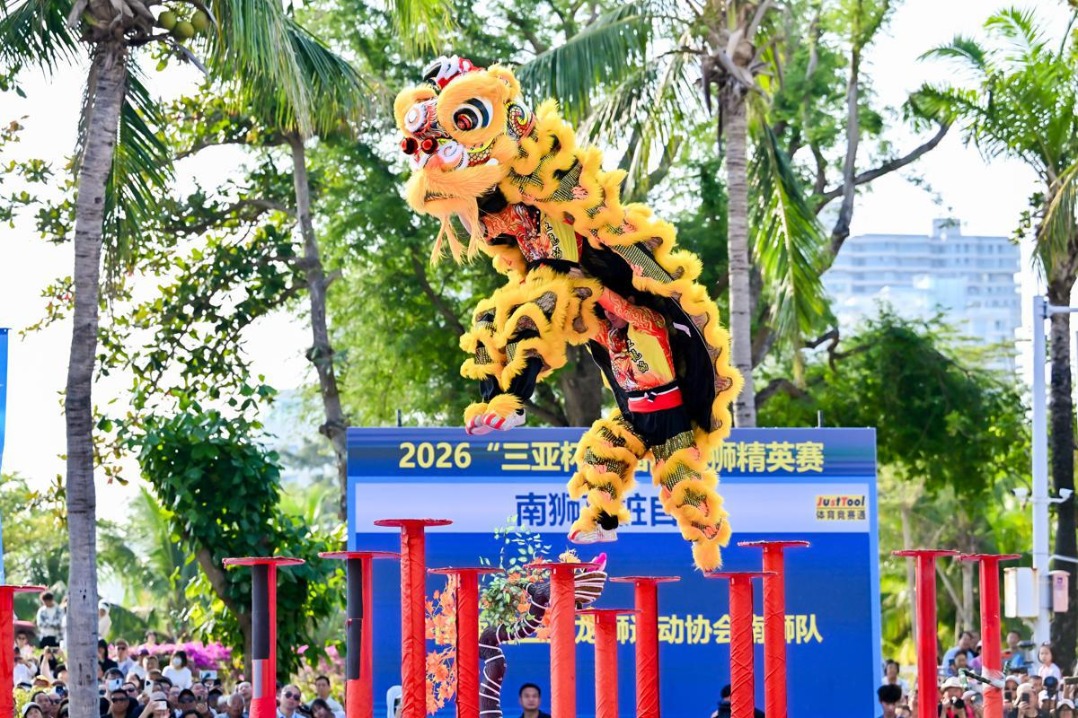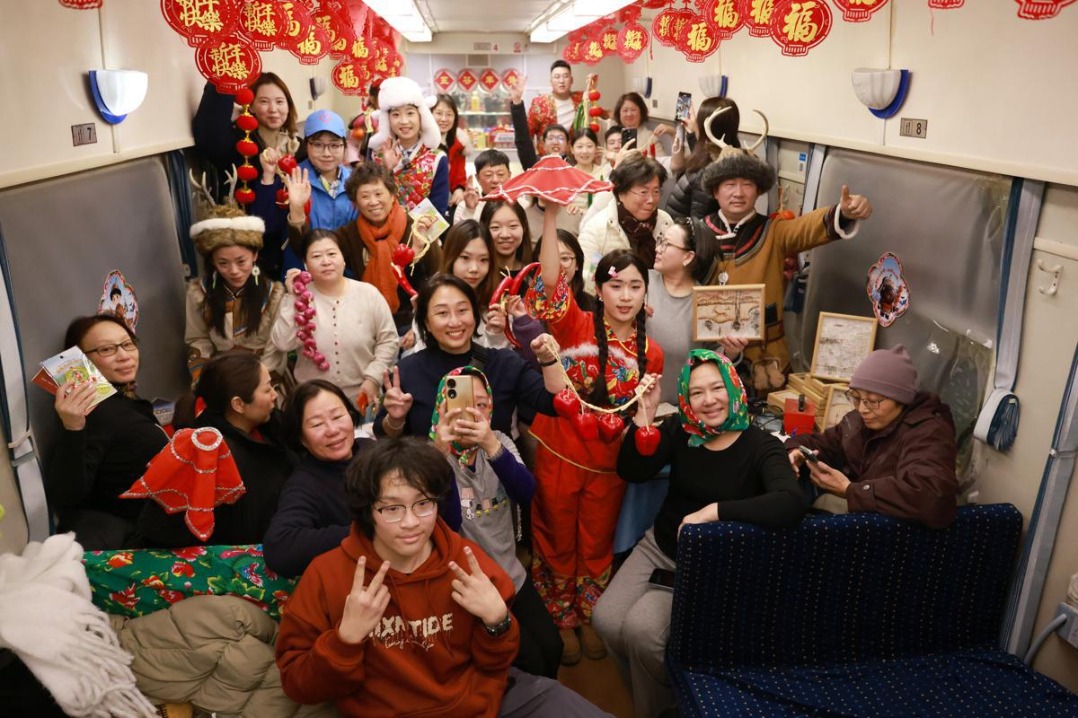Hit the reset button


Collective rise against prejudices
Isaac Chong Wai's Falling Reversely is part of the Biennale's main exhibition, titled Strangers Everywhere and curated by Adriano Pedrosa. The artist, who divides his time between Hong Kong and Berlin, took his cue from the rise of xenophobia, particularly intolerance of Asian people, in the West - a trend that gathered momentum with the outbreak of COVID-19.
Falling Reversely includes a seven-channel video installation and live performance. In the videos, performers belonging to different Asian ethnicities are shown to repeat the movements of falling down on the ground and standing up on their feet. The choreography imitates the rewind function of a camera, which allows users to revisit and retain what they like while editing out the rest, unlike real-life experience of racial hatred and abuse that cannot be corrected or deleted.

However, while "it is impossible to rewind the act of falling down", Chong points out that it is possible to do so "in the world of imagination and in the form of art".
"I conceived the work in 2021, at a time when many of my friends who are Asian diaspora living in Europe and the United States were physically and verbally assaulted in public spaces," he explains. "I work with performers from different parts of Asia, and we 'reverse' the movements of falling as a collective response to anti-Asian racism and systemic violence."
Mimi Chun, founder and director of Hong Kong's Blindspot Gallery, which represents Chong, draws attention to the compelling visuals created by the synchronized falling down, with "such movements manifesting as a shield against getting hurt". The slow and deliberate nature of the act of falling, Chun says, "accentuates the impact of hitting the ground, and also the power demonstrated in the collective rise against prejudices".
The first live show of Falling Reversely at the Arsenale turned out to be an emotional affair. "We fell over and over again, and we protected each other from falling again and again. Sometimes we managed, but not always," says Chong, who was among the performers. "Some audience members and performers cried. Many of us tried to hold back our tears."
However, Chong is not incapable of recognizing the ridiculous side of racist abuse. After a racist attacker hit him in the face with a broken glass bottle in Berlin, Chong took a profile photo showing his bruised side and called it a self-portrait.
"When you zoom in, the bruise looks like a smiley emoji face," he says.
- 10 dead and 84 injured in explosion at steel plant
- China unveils flexible urban planning rules to improve lives, foster new industries
- Ex–China Construction Bank executive gets 18 years for bribery, loan violations
- First batch of eco-friendly pioneer zones for construction of beautiful countryside unveiled
- Woodpeckers, finches captured in Jilin winter scenes
- Mainland reiterates 1992 Consensus as foundation for resuming cross-Strait dialogue




































